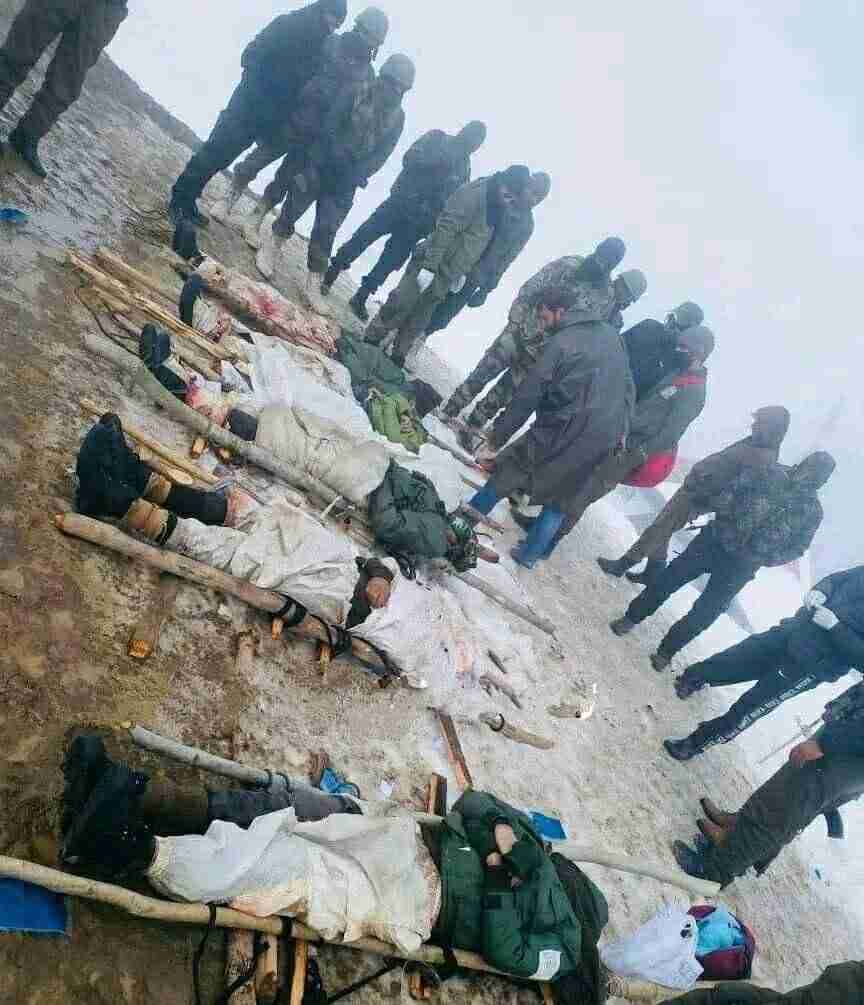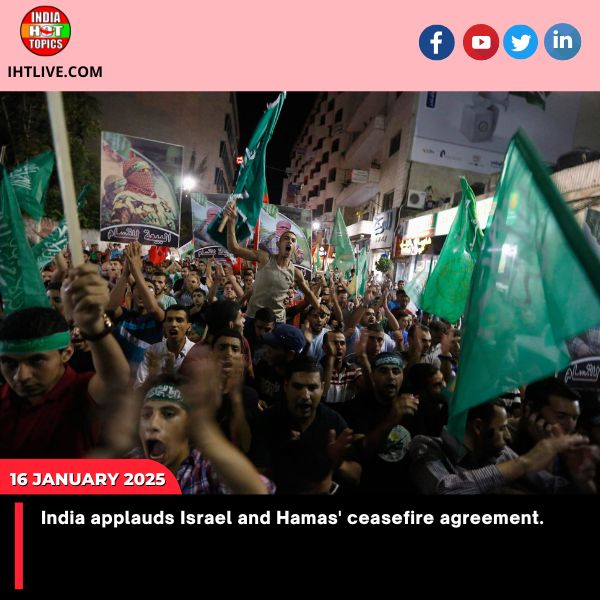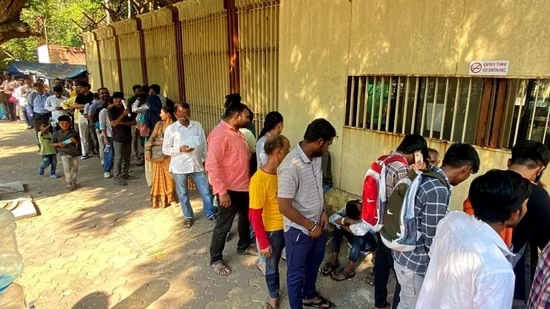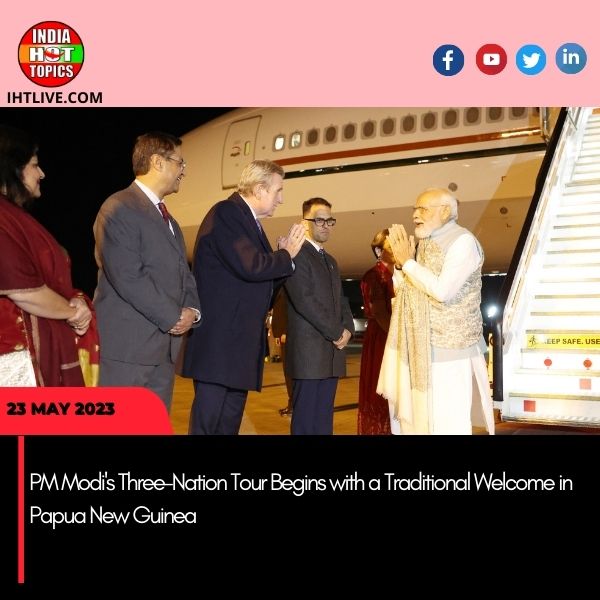Terror
4 terrorists were killed by the army in Poonch, Jammu & Kashmir.

Poonch, Jammu & Kashmir, July 18, 2023 — In a significant counter-terrorism operation, the Indian Army successfully eliminated four terrorists in an encounter in the Poonch district of Jammu & Kashmir. The operation, carried out with precision and determination, marks a major blow to the nefarious activities of militant groups operating in the region. Based on credible intelligence inputs regarding the presence of terrorists in the area, a joint team comprising the Indian Army and security forces launched a coordinated search and cordon operation in the early hours of the morning. The operation swiftly turned into an intense gunfight as the terrorists opened fire, prompting a strong response from the security personnel. During the exchange of fire, four terrorists were neutralized by the army. Their identities and affiliations are yet to be disclosed, as the security forces are conducting further investigations to gather more information about the militants and their potential links to other extremist organizations.
Four terrorists were killed in an encounter with security forces in Jammu and kashimr’s Poonch district on Tuesday.
The encounter took place in a remote area of Poonch, far from civilian habitation, minimizing the risk to innocent lives. The security forces displayed exceptional professionalism and tactical expertise, ensuring the operation was carried out with precision and minimum collateral damage.
Following the successful operation, security forces have intensified combing operations in the area to ensure the complete elimination of any remaining threats. The Army’s relentless efforts and vigilance have been instrumental in maintaining peace and stability in the region.
The elimination of these four terrorists is seen as a major victory in the ongoing fight against terrorism in Jammu & Kashmir. It showcases the unwavering commitment of the security forces to safeguard the lives of civilians and maintain peace in the region.
Authorities have commended the bravery and dedication of the Indian Army and security personnel involved in the operation. The operation’s success is expected to bolster the morale of the forces and serve as a deterrent to anti-national elements operating in the region.
The government has reiterated its commitment to eradicating terrorism from Jammu & Kashmir and ensuring the safety and security of its residents. It continues to urge local communities to cooperate with security forces and provide any relevant information that may aid in the prevention of terrorist activities.
As the security situation remains fluid, the Army and security forces remain on high alert, ready to respond to any potential threats. The successful operation in Poonch serves as a reminder of the security forces’ unwavering determination to protect the nation and maintain peace in the troubled region.
General News Platform – https://ihtlive.com/
Entertainment News Platforms – anyflix.in
Construction Infrastructure and Mining News Platform – https://cimreviews.com/
Podcast Platforms – https://anyfm.in/
India
India applauds Israel and Hamas’ ceasefire agreement.

The conflict was triggered by Hamas’s brazen terror attacks on southern Israel on October 7, 2023 that killed almost 1,200 people
India on Thursday welcomed the ceasefire deal reached between Israel and Hamas and reiterated its call for a return to a path of dialogue and diplomacy.
Negotiators from Israel and Hamas have agreed on a 42-day truce and hostage release, and the deal will come into effect on January 19, US President Joe Biden and Qatari Prime Minister Mohammed bin Abdulrahman bin Jassim Al Thani said on Wednesday. The truce comes after more than 460 days of war that has devastated Gaza.
“We welcome the announcement of the agreement for the release of hostages and a ceasefire in Gaza,” the external affairs ministry said in a brief statement.
“We hope this will lead to a safe and sustained supply of humanitarian assistance to the people of Gaza. We have consistently called for release of all hostages, ceasefire, and return to a path of dialogue and diplomacy,” the statement said.
The conflict was triggered by Hamas’s brazen terror attacks on southern Israel on October 7, 2023 that killed almost 1,200 people. More than 46,000 Palestinians have been killed in Israel’s retaliatory attacks and bombardment of the Gaza Strip.
Qatar’s prime minister told reporters that Israel and Hamas were still to conclude some logistical matters related to the ceasefire, while the office of the Israeli prime minister said in a statement that a number of details of the agreement remained unresolved. The deal also needs to be formally ratified by the Israeli cabinet and the government.
The initial phase of the ceasefire, set to last six weeks, will see a limited prisoner exchange, partial withdrawal of Israeli troops from Gaza and a surge of aid into the region. Thirty-three Israeli nationals taken hostage during the October 7 attacks will be released in exchange for a large number of Palestinian prisoners, according to reports.
Around 100 Israeli hostages are thought to be still in Gaza, though Israeli authorities believe some if them are dead.
India initially expressed solidarity with Israel after the attacks by Hamas, in line with its “zero tolerance” policy on terrorism, but it adopted a more nuanced position subsequently because of concerns expressed by Arab partners.
India has strong strategic ties with Israel while Arab states are key sources of energy and have developed stronger defence and security ties with India in the past decade. India also had significant concerns about the potential expansion of the conflict because West Asia is home to nine million Indians, with almost six million of them concentrated in Saudi Arabia and the United Arab Emirates.
As the war dragged on, India repeatedly urged Israel to be mindful of humanitarian concerns in its response. The Indian side also called for the unimpeded provision of humanitarian aid to the people of Gaza and a return to the path of dialogue and diplomacy aimed at finding a two-state solution.
Group Media Publications
Entertainment News Platforms – anyflix.in
Construction Infrastructure and Mining News Platform – https://cimreviews.com/
General News Platform – https://ihtlive.com/
Terror
Russia lifts anti-terrorist security regime after Wagner mutiny coup.

Russia Lifts Anti-Terrorist Security Regime After Wagner Mutiny Coup
Recent developments in Russia have caught the attention of the international community, as the country lifted its anti-terrorist security regime following a mutiny coup allegedly orchestrated by the private military company known as the Wagner Group. This dramatic turn of events has sparked widespread discussions and raised questions about the implications for national security, the role of private military companies, and the stability of the region. In this blog post, we explore the key details surrounding the Wagner mutiny coup and its aftermath, and the potential consequences of Russia’s decision to lift the anti-terrorist security regime.
The Wagner Group, a Russian private military company believed to have close ties to the Kremlin, has been implicated in various conflicts and military operations around the world. Reports emerged recently suggesting that a mutiny coup was attempted by some members of the Wagner Group, which posed a significant challenge to the Russian government’s control and security apparatus. The exact motivations and details of the coup remain speculative, but the incident has raised concerns about the influence and actions of private military companies.
The attempted mutiny coup by the Wagner Group has exposed vulnerabilities in Russia’s security apparatus and sparked debates about the efficacy of the country’s counter-terrorism measures. The lifting of the anti-terrorist security regime may be seen as a response to the coup’s suppression, but it also raises questions about the potential risks and repercussions. Balancing national security concerns with the need for transparency and accountability will be crucial for Russia moving forward.
The Wagner Group’s alleged involvement in the mutiny coup raises broader questions about the role and regulation of private military companies worldwide. Such companies operate independently of state control and often have access to significant military capabilities. The incident underscores the need for stricter oversight and regulation to prevent private military companies from becoming potential threats to national security and stability.
The aftermath of the Wagner mutiny coup and the lifting of the anti-terrorist security regime could have wider geopolitical ramifications. Russia’s actions and responses will be closely watched by neighboring countries and international powers. The incident may impact regional stability, heighten tensions, and potentially reshape diplomatic relations in the region.
Transparency and accountability are vital elements in maintaining public trust and confidence. The lifting of the anti-terrorist security regime without detailed explanations may raise concerns about the government’s commitment to openness. It is crucial for the Russian authorities to address public apprehensions, provide clarity about the incident, and outline measures taken to prevent similar occurrences in the future.
The Wagner mutiny coup serves as a wake-up call for countries worldwide to reassess the operations of private military companies and their potential impact on national security. The incident highlights the need for enhanced regulation, oversight, and intelligence-sharing mechanisms to prevent similar destabilizing events. Governments must prioritize comprehensive security measures and continuously evaluate their effectiveness in an ever-changing security landscape.
The Wagner mutiny coup and Russia’s subsequent decision to lift the anti-terrorist security regime have brought attention to the activities of private military companies and raised concerns about national security and stability. As the situation unfolds, it is essential for governments, both in Russia and globally, to reflect on the incident, strengthen regulatory frameworks, and ensure transparency and accountability in dealing with private military entities. By learning from this episode, nations can take proactive steps to mitigate risks, safeguard national security, and maintain stability in an increasingly complex and interconnected world.
General News Platform – https://ihtlive.com/
Entertainment News Platforms – anyflix.in
Construction Infrastructure and Mining News Platform – https://cimreviews.com/
Podcast Platforms – https://anyfm.in/
India
Security forces and terrorists are currently engaged in combat in J&K’s Kupwara.

Security Forces and Terrorists Engage in Combat in J&K’s Kupwara: Upholding Peace Amidst Conflict
The persistent conflict in the state of Jammu and Kashmir (J&K) has been a longstanding issue that demands continuous attention and efforts to restore peace. Unfortunately, the region once again witnesses the clash between security forces and terrorists, this time in the district of Kupwara. As the combat unfolds, it is crucial to understand the complexities of the situation and the challenges faced by both the security forces and the local residents who yearn for peace.
Kupwara, a district located in the northern region of J&K, has been a hotspot of militancy and unrest for many years. It shares its border with Pakistan-administered Kashmir, making it susceptible to infiltration and cross-border tensions. The rugged terrain and dense forests provide an advantage to terrorists seeking to carry out their activities. The recent engagement between security forces and terrorists highlights the persistent threat faced by the region.
The security forces, comprising the Indian Army, paramilitary personnel, and local police, play a crucial role in maintaining peace and security in Kupwara. Their primary objective is to neutralize terrorists and ensure the safety of civilians. These forces operate in a highly challenging environment, facing a determined adversary that often resorts to asymmetric warfare tactics. They rely on intelligence networks, surveillance technology, and extensive training to carry out counterinsurgency operations while minimizing civilian casualties.
Combatting terrorism in J&K presents a multitude of challenges for the security forces. The difficult terrain, including mountains and dense forests, makes it easier for terrorists to hide and launch surprise attacks. The porous border with Pakistan poses a significant infiltration threat, with terrorists frequently crossing over to carry out their nefarious activities. Additionally, the local support and sympathy that terrorists receive from certain sections of the population make it harder for security forces to gather intelligence and maintain trust within the community.
While security forces engage in combat with terrorists, it is the innocent civilians caught in the crossfire who bear the brunt of the conflict. The residents of Kupwara face constant fear, uncertainty, and disruptions in their daily lives. They are subjected to security checkpoints, curfews, and restricted movements, impacting their social and economic well-being. The situation also puts children’s education at risk and hampers the region’s development prospects.
Resolving the conflict in Kupwara and other parts of J&K requires a comprehensive and holistic approach. While security operations are essential for neutralizing terrorist elements, it is equally crucial to address the underlying causes of militancy. Socio-economic development, youth engagement, education, and community outreach programs can help channel the energies of the local population towards constructive paths. Dialogue and negotiations between stakeholders are vital to finding a long-term and sustainable solution.
The conflict in J&K has garnered attention globally, and international support and cooperation are vital for resolving the issue. Neighboring countries, including Pakistan, must play a constructive role by addressing cross-border infiltration and cutting off support to terrorist organizations. Diplomatic efforts, aided by regional and international organizations, can help facilitate dialogue between India and Pakistan, leading to a peaceful resolution that benefits both nations.
The ongoing combat between security forces and terrorists in Kupwara underscores the complexity and challenges faced in maintaining peace in Jammu and Kashmir. It is crucial to recognize the dedication and sacrifice of the security forces while simultaneously working towards addressing the root causes of militancy. Through a holistic approach that combines security operations, socio-economic development, and diplomatic.
General News Platform – https://ihtlive.com/
Entertainment News Platforms – anyflix.in
Construction Infrastructure and Mining News Platform – https://cimreviews.com/
Podcast Platforms – https://anyfm.in/
-
Tech4 months ago
Best Zebronics Bluetooth speakers you can buy today for an unmatched audio experience
-

 India2 years ago
India2 years agoNew Season 8 The Walking Dead trailer flashes forward in time
-

 India1 year ago
India1 year agoThe afternoon briefing revealed that 97.26% of the ₹2000 notes were returned, and the Israeli Prime Minister committed to war goals.
-

 World11 months ago
World11 months agoMichigan splash pad attack: A couple was shot seven times in total while defending their two small daughters.
-

 India2 years ago
India2 years agoSrikanth Venkatachari is appointed as the new chief financial officer by Reliance Industries.
-

 India2 years ago
India2 years agoPM Modi’s Three-Nation Tour Begins with a Traditional Welcome in Papua New Guinea
-

 India8 years ago
India8 years agoThe 9 worst mistakes you can ever make at work
-

 Special 365 days2 years ago
Special 365 days2 years agoFlag Day of India



.jpg)




